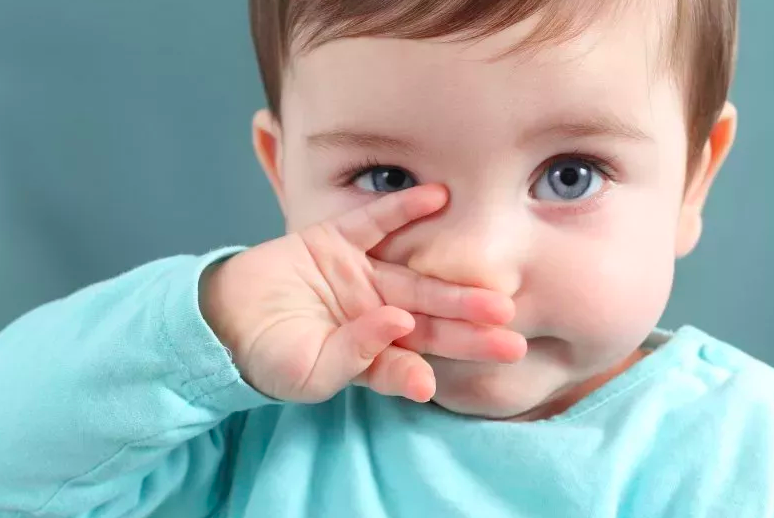
Humans touch their own faces often because they are subconsciously smelling themselves for a variety of reasons, scientists believe. The team also conducted a survey to see whether people subconsciously smell themselves and others, and found more than half of the participants had smelled a stranger.
The authors of the article titled Are humans constantly but subconsciously smelling themselves? published in the journal Royal Society journal Philosophical Transactions B reviewed existing studies to understand if and why humans smell themselves.
As it is believed 25 percent of respiratory diseases are transferred due to face-touching, the authors argue there must be some evolutionary benefit to the practice otherwise it would have been minimized in humans.
Humans may sniff their hands to gain information about those they have touched, the researchers said. And they may smell themselves to check they don't smell bad, and also to gain a notion of their sense of self, “given that mirrors have not been around since the dawn of humanity.”
As part of the project, the team at the Weizmann Institute of Science Department of Neurobiology in Israel carried out an online survey involving 399 people from 19 countries. The group included 137 men and 260 women aged between 19 and 74, and 35 on average. The participants rated whether they never, rarely, occasionally or often partook in certain smelling behaviors.
Of the total respondents, 94 percent said they had smelled themselves, 60 percent said they had sniffed a stranger, and 94 percent a close relative. Women more likely to sniff their children than men, they found. Over 90 percent of participants said they smelled their hands and or armpits. A further 55 percent said they had smelled their hand after placing it in their armpit, and 73 percent of men and 55 percent of women their crotch. The 182 parents who took part said they noticed a period, peaking between the ages of three and six, where their children often smelled their hands.
“We conclude from all this that although in our view most of olfactory social sniffing is subconscious, upon being asked, humans are nevertheless quite aware of engaging in this behavior,” the authors wrote.
However, the team acknowledged their survey was limited because they relied on the participants being honest, and it was shared on their social media accounts so the responses might not be reflective of a wider population.
“These limitations are here further accentuated given that we are dealing with a behavior that is largely subconscious, and often treated as taboo. Nevertheless, this effort sheds initial light on behaviors that otherwise have almost no reflection in the literature," the team said.
To answer whether we smell ourselves, the team also reviewed past research on primates, humans. One paper they cited suggested we breathe in through our noses more as we touch our faces so we can smell ourselves. In a different study, scientists watched to see how often people in different scenarios would touch their faces found humans often feel this part of the body—as many times as 13 times in 20 minutes in one experiment.
Another study, carried out by the same team from the Weizmann Institute, involved measuring the airflow from the noses of 33 participants. Findings suggest people sniffed their own hands as they touch their faces. “Although we speculate that self-smelling through self-face-touching is largely an unconscious act, we note that in addition, humans also consciously smell themselves at high frequency,” they wrote.
In the latest study, the team conclude: “It is through this prism [of understanding the self] that we view most of face-touching behaviour. For example, humans are said to hide their faces in their hand when they sense shame. But why do they do this? We argue that sniffing the inside of the hand provides a reassuring signal of self that aids in managing such self- threatening emotions,” the authors wrote.
They added more research is needed to explore the poorly understood topic of self-smelling in humans.
Co-author Professor Noam Sobel of the Weizmann Institute of Science told Newsweek he was surprised by the extent to which people touch their own face. His team believes face-touching “is important for our psychological stability.”
Amid the COVID-19 pandemic, which has seen health officials around the world advise people to avoid touching their faces, Sobel said the review “implies that stopping to touch our face will be very difficult.”
Asked what the take-home message is for readers, Sobel said: “if anybody feels bad about it [smelling themselves], they shouldn't. Everybody is smelling themselves all the time [...] and that's fine.”
“Moreover, there appears to be an age range where children very overtly sniff themselves, and Google suggests that this concerns a lot of parents. It shouldn't. And it passes,” he said.
